第2章
Some of the happiest moments of my moral existence were thus obtained, while our family was growing in the fields of Normandy. It happened that a distinguished astronomer selected a beautiful seat, that was placed on the very margin of our position, as a favorite spot for his observations and discourses; from a recollection of the latter of which, in particular, I still derive indescribable satisfaction. It seems as only yesterday--it is in fact fourteen long, long years--that I heard him thus holding forth to his pupils, explaining the marvels of the illimitable void, and rendering clear to my understanding the vast distance that exists between the Being that created all things and the works of his hands. To those who live in the narrow circle of human interests and human feelings, there ever exists, unheeded, almost unnoticed, before their very eyes, the most humbling proofs of their own comparative insignificance in the scale of creation, which, in the midst of their admitted mastery over the earth and all it contains, it would be well for them to consider, if they would obtain just views of what they are and what they were intended to be.
I think I can still hear this learned and devout man--for his soul was filled with devotion to the dread Being that could hold a universe in subjection to His will--dwelling with delight on all the discoveries among the heavenly bodies, that the recent improvements in science and mechanics have enabled the astronomers to make. Fortunately, he gave his discourses somewhat of the progressive character of lectures, leading his listeners on, as it might be step by step, in a way to render all easy to the commonest understanding. Thus it was, I first got accurate notions of the almost inconceivable magnitude of space, to which, indeed, it is probable there are no more positive limits than there are a beginning and an end to eternity! Can these wonders be, I thought--and how pitiful in those who affect to reduce all things to the level of their own powers of comprehension, and their own experience in practice!
Let them exercise their sublime and boasted reason, I said to myself, in endeavoring to comprehend infinity in any thing, and we will note the result! If it be in space, we shall find them setting bounds to their illimitable void, until ashamed of the feebleness of their first effort, it is renewed, again and again, only to furnish new proofs of the insufficiency of any of earth, even to bring within the compass of their imaginations truths that all their experiments, inductions, evidence and revelations compel them to admit.
"The moon has no atmosphere," said our astronomer one day, "and if inhabited at all, it must be by beings constructed altogether differently from ourselves. Nothing that has life, either animal or vegetable as we know them, can exist without air, and it follows that nothing having life, according to our views of it, can exist in the moon:--or, if any thing having life do exist there, it must be under such modifications of all our known facts, as to amount to something like other principles of being.""One side of that planet feels the genial warmth of the sun for a fortnight, while the other is for the same period without it," he continued. "That which feels the sun must be a day, of a heat so intense as to render it insupportable to us, while the opposite side on which the rays of the sun do not fall, must be masses of ice, if water exist there to be congealed.
But the moon has no seas, so far as we can ascertain; its surface representing one of strictly volcanic origin, the mountains being numerous to a wonderful degree. Our instruments enable us to perceive craters, with the inner cones so common to all our own volcanoes, giving reason to believe in the activity of innumerable burning hills at some remote period. It is scarcely necessary to say, that nothing we know could live in the moon under these rapid and extreme transitions of heat and cold, to say nothing of the want of atmospheric air." Ilistened to this with wonder, and learned to be satisfied with my station.
Of what moment was it to me, in filling the destiny of the linum usitatissimum, whether I grew in a soil a little more or a little less fertile;whether my fibres attained the extremest fineness known to the manufacturer, or fell a little short of this excellence. I was but a speck among a myriad of other things produced by the hand of the Creator, and all to conduce to his own wise ends and unequaled glory. It was my duty to live my time, to be content, and to proclaim the praise of God within the sphere assigned to me. Could men or plants but once elevate their thoughts to the vast scale of creation, it would teach them their own insignificance so plainly, would so unerringly make manifest the futility of complaints, and the immense disparity between time and eternity, as to render the useful lesson of contentment as inevitable as it is important.
I remember that our astronomer, one day, spoke of the nature and magnitude of the sun. The manner that he chose to render clear to the imagination of his hearers some just notions of its size, though so familiar to astronomers, produced a deep and unexpected impression on me.